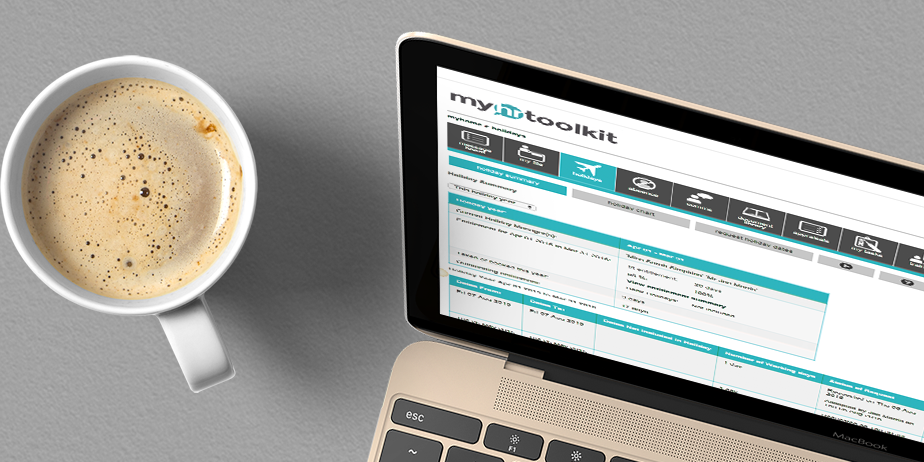Probation periods: a useful tool for assessing new recruits or a thorn in the side of employee relations?
There is no legal requirement for a business to have a probationary period for new staff, but they have become popular across the UK as a way for employers to assess how well an employee fits their role, usually within their first 3-6 months.
But probation periods aren’t without their controversy. I asked HR and employment law experts for their views on whether probation periods are effective or ready for the scrap heap and received a range of responses. Here’s what they had to say...
Probation periods are here to stay

Many HR consultants and employment lawyers swear by the probation period as a useful process for employers (when they are used consistently and correctly). Here were some responses for probation periods:
“Some certainty is really important”
 “Probationary periods are a brilliant yet under-utilised management tool. They work well to manage everyone’s expectations, but they often get overlooked or ignored. You’ll find a reference to a probationary period in every good employment contract. You’ll also now find reference to probationary periods in the Employment Rights Act 1996.
“Probationary periods are a brilliant yet under-utilised management tool. They work well to manage everyone’s expectations, but they often get overlooked or ignored. You’ll find a reference to a probationary period in every good employment contract. You’ll also now find reference to probationary periods in the Employment Rights Act 1996.
“My top tip is to schedule regular catch ups with a new member of staff. You will likely need to do this anyway, but in some situations (especially with remote working) there is a danger that new employees are just left to get on with things or drift. Schedule a formal monthly check in, and again after two months. If the probationary period is three months or six months, then formally document whether the probationary period has been passed and put that in writing. If not, explain why and what the next steps are.
“In the employer/employee relationship, some certainty is really important. Properly using the probationary period for clear communication is an excellent opportunity to prove what a good employer you are!”
– Emma del Torto, Effective HRM
“A great onboarding and engagement tool”
 “Most of my clients use probationary periods with regular reviews and conversations about performance.
“Most of my clients use probationary periods with regular reviews and conversations about performance.
"I don’t mean using them as a big stick, but where we miss a trick is not linking them to an individualised induction and development plan. Only using them when things are going wrong is missing a trick.
“Maybe it just needs rebranding to step away from the negativity and focus on how they can be a great onboarding and engagement tool, particularly in sectors like care where retention is tricky.”
– Rebecca Francis-Davies, Swansea Bay HR
Probation periods have got to go

Some responses leaned more towards scrapping probation periods altogether, instead of giving them a rebrand. Or focusing on other ways to onboard new employees:
“The job isn’t safe”
 “I don’t really like probationary periods - it gives a feeling the job isn’t safe until that point, then they can relax after.
“I don’t really like probationary periods - it gives a feeling the job isn’t safe until that point, then they can relax after.
"I think proper management and helpful one-to-ones are a more sustainable way to manage people. I feel like there’s no point in probationary periods in many cases, but that might just be my experience.”
– Jodie Hill, Founder & Managing Partner at Thrive Law
“Not the best way to build a relationship”
 “To be polite, if you need a probation period, you’re basically saying you don't trust your interview process, or you don't trust the interviewer. In which case, you need to look at your interview processes.
“To be polite, if you need a probation period, you’re basically saying you don't trust your interview process, or you don't trust the interviewer. In which case, you need to look at your interview processes.
“From the employee viewpoint, the first message you given them is ‘well you passed the interview, but we’re not really sure that we trust you or that you are the right person’. Not the best way to build a relationship, and worse your employee now has months of worry!
“Also, unless you dismiss the new employee for a reason that would be automatically unfair or discrimination, if they haven't worked for you for more than 2 years, then they have no right to challenge the dismissal.
“As the law really protects the employer for those 2 years, wouldn't it be much nicer and make your new employee feel valued if you said, ‘we have faith in you so we’re forgoing any probation period. However, we will have a few meetings over the next 6 months to discuss how you’re getting on and see if we you need any support or if we can support you further’. Think how that employee would feel.
“Just my own personal thoughts on this!” – Stephen Hone, Head of Law at Sandwell College
Probation periods just need a rebrand

The majority of responses agreed with probation periods on the whole, but thought they needed somewhat of a rebrand, as in their current state these periods can make employees feel vulnerable:
“Settling in periods”

“My clients have settling in periods, rather than probationary periods. Monthly catch-ups scheduled to check all is going well and if any additional support is needed. Very useful if used properly.”
– Julie Grabham, JG HR Solutions
“Hanging over the employee’s head”
 “I agree with the concept of a probationary period, but not the terminology. It feels like something hanging over the employee’s head.
“I agree with the concept of a probationary period, but not the terminology. It feels like something hanging over the employee’s head.
“That being said, employers should be able to have a period during which they can assess suitability for a role, particularly for senior positions that bring with them longer notice periods.
"If a small business takes on an expensive Sales Executive, it would be a disaster to have to pay an expensive 3 month notice period if it became quickly apparent that that Exec wasn’t right for the job.”
– Tom Stenner-Stevens, Partner at Thrive Law
“So one-sided”
 “In my opinion, probation periods need a complete rebrand and shake up. The word probation sounds so one-sided and very much give the message, ‘it’s up to you NEWBIE to prove yourself or you're out!’
“In my opinion, probation periods need a complete rebrand and shake up. The word probation sounds so one-sided and very much give the message, ‘it’s up to you NEWBIE to prove yourself or you're out!’
“Things have changed in the world of work and it’s very much a candidate’s market at the moment. So, while I agree that the probation period is a useful and under-utilised tool, it needs to be revamped so that it’s much more of a two way process, with the emphasis on settling the new employee into the business.
“It’s about really making sure they have all the right tools to do the job, maybe having a buddy or mentor, regular catch ups with their manager, a thorough understanding and explanation of the job role, team welcome events, and more besides.
“I’d capture it under the heading of the 'settling in period', 'getting to know each other phase' or 'the honeymoon period' – anything that makes them feel really welcome. Hell, throw in some gifts and by no means least (a favourite of mine) an acronym handbook! Some places have so many acronyms it takes an absolute age to remember them all; a simple booklet explaining them all would go a long way, make life easier and save so much time.”
– Kate Marchant, Running HR Ltd
Should they stay or should they go?
Is it time for probation periods to hear the death knell or will they have a long life yet? Feel free to share your thoughts with us on Twitter or LinkedIn.
Managing probation periods with HR software

For employers who do use probationary periods or similar, you can easily set these up and amend them using our HR software system specifically built for SMEs, myhrtoolkit.
You can set up notifications to ensure that your probationary process is being followed and those important reviews and catch-ups aren’t being missed. It’s also easy to create reports on probationary periods and see which have expired, helping you keep on top of it all. It’s a win-win for SMEs and employees, as everything is fair and consistent.
Read more from our blog

Written by Camille Brouard
Camille is a Senior Marketing Executive for myhrtoolkit who writes on topics including HR technology, workplace culture, leave management, diversity, and mental health at work.


 Holiday Planner
Holiday Planner Absence Management
Absence Management Performance Management
Performance Management Staff Management
Staff Management Document Management
Document Management Reporting
Reporting Health and Safety Management
Health and Safety Management Task Management
Task Management Security Centre
Security Centre Self Service
Self Service Mobile
Mobile




